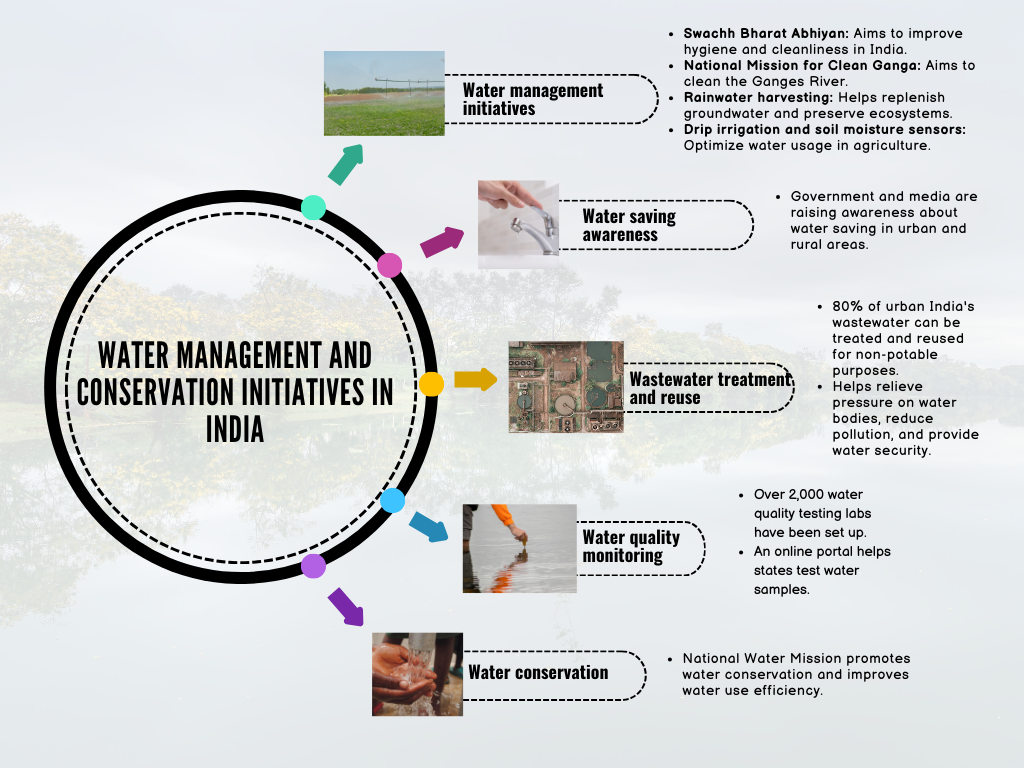Water scarcity is becoming a global issue, and ensuring sustainable water treatment is essential to managing this challenge. With environmental concerns growing due to climate change, it’s crucial to find ways to clean and manage water resources in an eco-friendly manner. Sustainable water treatment refers to practices that effectively purify water while minimizing harm to the environment, conserving natural resources, and ensuring that water remains available for future generations.
Sustainable water treatment isn’t just about filtering water; it involves a holistic approach to water management, focusing on minimizing waste, saving energy, and using technologies that can improve water quality in an environmentally friendly way. In this article, we’ll explore how water testing plays a central role in this process and how modern innovations in water management help us tackle these challenges.
The Importance of Water Testing in Sustainable Water Treatment
Water testing is a vital part of sustainable water treatment because it helps us monitor and assess water quality. By regularly testing water, we can identify harmful contaminants and measure the effectiveness of treatment processes. This allows for more targeted and efficient water treatment, reducing the need for excessive chemicals and energy. With advancements in water testing technology, including real-time sensors and AI-integrated systems, we can continuously track water quality, making the purification process smarter and more sustainable.
How Sustainable Water Treatment Impacts Key Sectors
Sustainable water treatment plays a critical role in various sectors of society, including agriculture, industry, and urban planning. Each of these sectors can benefit from water treatment solutions that conserve water and reduce environmental damage.
Agriculture
Agriculture sector uses huge water sources across the world. By implementing sustainable water treatment systems, agricultural operations can reduce water consumption and recycle wastewater. Water testing in agriculture helps ensure that runoff water, which might carry harmful chemicals, is properly treated before entering natural water systems. Techniques like constructed wetlands, which naturally filter agricultural wastewater, provide a sustainable solution that benefits both the farm and the environment.
Industry
Many industries depend on large amounts of water for their processes. Sustainable water treatment technologies allow industries to recycle and reuse water, significantly reducing their overall water consumption and the generation of wastewater. In industrial settings, water testing ensures that water is properly purified before it is reused or released back into the environment, helping to maintain water quality and reduce pollutants. These practices also help industries save money while minimizing their environmental impact.
Urban Planning
With the growth of urban areas, the demand for clean water is increasing. Sustainable water treatment is essential in urban planning to manage this growing demand while protecting water resources. Green infrastructure, like rain gardens and permeable pavements, can naturally filter storm water, reducing the burden on traditional water treatment plants. Water testing in urban settings ensures the efficiency of these decentralized systems, ensuring safe, clean water at the local level.
How Technology is Shaping Sustainable Water Testing and Treatment
Technology plays an important role in advancing sustainable water treatment and testing. New systems, such as smart water sensors and automated treatment plants, make it easier to monitor water quality in real-time. These technologies help detect contaminants, optimize treatment processes, and conserve energy. For example, advanced oxidation processes (AOP) and electrocoagulation (EC) are effective ways to remove pollutants with minimal use of chemicals, which is better for the environment.
In addition to these technologies, researchers are exploring more innovative solutions, such as algae-based filtration systems and nanomaterials that can remove microscopic contaminants with greater efficiency. These breakthroughs offer great potential for further reducing the environmental impact of water treatment and enhancing its sustainability.
Overcoming Challenges in Implementing Sustainable Water Treatment
Although the benefits of sustainable water treatment are clear, there are challenges to its implementation. One major issue is cost. While the initial investment in sustainable systems can be high, these technologies often offer long-term savings through water conservation, reduced chemical use, and lower energy costs. Overcoming these initial costs requires funding or incentives, particularly for smaller communities or developing regions.
Another challenge is the public perception of water reuse, especially when treated wastewater is involved. Many people hesitate to use recycled water, even when it is purified to meet drinking water standards. Water testing and transparency about the safety and effectiveness of treatment methods can help overcome these concerns. Education is crucial to building trust in sustainable water treatment solutions.
Additionally, sustainable water treatment solutions must be tailored to specific regional needs. What works in one area may not be effective in another due to differences in water availability or quality. Developing flexible systems that can be adjusted to local conditions is key to ensuring success in sustainable water management.

The Future of Sustainable Water Treatment
The future of sustainable water treatment is bright, with ongoing innovations paving the way for significant advancements. One area of growth is decentralized water treatment, which involves smaller, localized systems rather than relying solely on large treatment plants. These decentralized solutions can reduce the energy required to transport water over long distances and provide communities with more resilience in the face of water shortages or climate disruptions.
Another exciting area is the integration of water treatment with energy production. Some researchers are exploring ways to use wastewater treatment processes to generate energy, turning treatment plants into net energy producers. This would further reduce the environmental impact of water treatment while improving energy efficiency.
As technology advances, water testing will continue to play an essential role in ensuring the success of these solutions. Real-time testing and automated treatment systems will help to maintain water quality, reduce waste, and improve efficiency in water management.
Advancing Sustainable Water Treatment through Technology
Technology is crucial in improving water treatment methods, enabling more sustainable and efficient solutions. Smart sensors and AI-driven systems are optimizing water management, while eco-friendly technologies are transforming the field.
Sustainability Across Sectors
Water treatment is vital not only for drinking water but also for agriculture, industry, and urban areas.
Agriculture: Sustainable water treatment, such as reusing agricultural runoff or using constructed wetlands, can reduce water consumption and pollution.
Industry: Water recycling and reuse technologies allow industries to reduce consumption and wastewater, easing pressure on local water supplies.
Urban Areas: Decentralized water treatment and green infrastructure are helping cities manage water more sustainably as populations grow.
Challenges to Sustainable Water Treatment
Despite its benefits, adopting sustainable water treatment faces several challenges.
Cost: The initial investment in sustainable systems can be high, especially for smaller communities.
Public Perception: To overcome the “discomfort factor” associated with treated wastewater, education is essential to foster trust in water reuse technologies.
Context-Specific Solutions: Water treatment solutions need to be adapted to local conditions, as what works in one region may not be feasible in another.
The Future of Water Treatment
The future of water treatment includes integrating systems for greater efficiency, such as turning treatment plants into energy producers. Decentralized treatment systems are also gaining attention, reducing energy costs associated with transporting water. As climate change impacts water availability, adaptive systems will be key in ensuring a consistent, clean water supply.
Securing Water for the Future
Sustainable water treatment is essential for reducing environmental impacts and ensuring clean water for future generations. By adopting advanced technologies, sectors can contribute to more efficient, eco-friendly water management practices.
Sustainable water treatment is vital for addressing global water scarcity and environmental challenges. Water testing is central to these efforts, as it allows for real-time monitoring and ensures that water treatment processes are effective and environmentally friendly.
By integrating advanced technologies, promoting water conservation, and fostering public understanding of water reuse, we can create a more sustainable future for water management. The continued development of innovative water treatment solutions, supported by accurate water testing, will help us secure clean and safe water for generations to come.


Leave a Reply